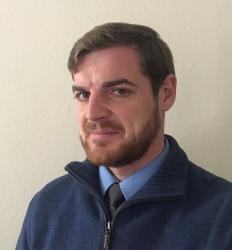Today Alejandro Chafuen, Acton’s Managing Director, International, offered further thoughts on the current crisis in Venezuela in an article published by Law & Liberty. His piece paints a general picture of major figures and their roles in the situation, as well as international actions and efforts in response to it. Chafuen notes that this is not a complete list—other issues such as drug trafficking revenues are also important—but his descriptions offer a good overview of the Venezuelan crisis seen from the perspective of leadership.
Foreign countries seldom enter into Washington’s policy debates unless what happens in those countries could affect the lives and interests of the people of the United States. Those that usually make the cut are China, Russia, Mexico, Israel, and nations that support radical Islamist forces. North Korea has also been on Americans’ minds. Some of the global analysts I respect most, like retired Navy Admiral Bobby Inman, still consider an aggressive nuclear event to be the number one threat faced by the civilized world. And now comes Venezuela. The role of foreign players from Iran, Cuba, Russia, and China makes the Venezuelan situation of immense strategic importance for the free world.
This is reflected in trends on the Internet, for during the last 12 months, judging by the rankings of Google searches, many in the United States have started to pay attention. Venezuela has eclipsed all other foreign countries except China as a search term. Over the past week or so, the U.S. President and Vice President have declared that there is no going back, and that the former President of Venezuela, Nicolás Maduro, will have to leave the office he now usurps.
There was a major change in the attitude of the U.S. government after President Obama left office in early 2016. Obama’s “leading from behind” policy gave Maduro, his predecessor and mentor, the late Hugo Chávez, and others of their ilk free rein and left Washington playing a reactive role. More than that, Obama was pushing friendlier policies toward Iran and Cuba, two Maduro allies. The inauguration of Donald Trump changed the situation, and it is now the Maduros of this world who are in reactive mode.
I am a Buenos Aires-born U.S. citizen who has been involved in Venezuela for over three decades, and I support as much as I can all who work to recover their lost liberties. As an economist, I approach this or any similar situation based on a simple model: I focus on what is happening in the field of ideas, incentives, and leadership. I also believe that luck and providence play a role in life, but the only thing we can do in that field is pray or cross our fingers.
The model is simple, but the answers are not. As a worker in the field of ideas, I am biased on their role in the unfolding of political life, especially for the long term. But ideas without action are just ideas, so I will start with a brief description of the current people playing a leadership role.
Read the entire piece here.
(Homepage photo credit: US Vice President Mike Pence meets with representatives of the Venezuelan opposition government. US Government, public domain.)

